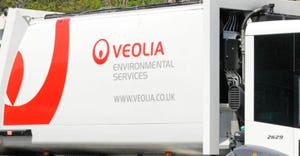The Growing Problem of Rural Waste
Lexington, Kentucky-based think tank, The Rubicon Institute, aims to educate companies and consumers about trash and address the issues our current waste crisis is exacerbating—specifically focusing on rural waste, urban waste, space waste, and national security issues pertaining to waste.
June 8, 2022
Nate Morris, CEO, Rubicon
Most people don't think much about what happens to trash after they throw it away. But the reality of trash is that nothing ever fully goes away. Your trash has a long and complicated life even after you toss it to the curb. Waste contributes to environmental issues, safety issues, security issues, and even challenges in space.
Most of the time, when we throw something away, it gets trucked to a landfill and buried, and many of those landfills are in rural America, where citizens of the Heartland must accept other people's trash. That's one leading cause of the rural waste epidemic.
Recently, the Rubicon Institute partnered with the University of Pikeville to develop research on how to address the growing problem of rural waste. For decades, rural America has been a dumping ground for much of our nation's trash—brought in by rail from the coasts to bury in landfills in the Heartland. Additionally, small communities often lack the same infrastructure and financial means to set up regular trash pickups and recycling programs, resulting in widespread litter and illegal dumping, hindering economic development and enjoyment of the natural beauty in our rural communities. Illegal tire dumping in the region's waterways is of particular concern.
Through the Rubicon-UPIKE partnership, Rubicon Institute is sponsoring the Rural Waste Innovation Challenge to encourage UPIKE students to create innovative solutions to waste-related problems in their own community, with the winner to be announced in the near future. Additionally, UPIKE is developing a whitepaper with the Institute's support to highlight specific challenges and showcase various solutions to rural waste issues in Pikeville, Eastern Kentucky, and Appalachia at large. This whitepaper can serve as a template for rural communities around the country.
Urban waste is also a concern. Food waste, food insecurity, and food deserts in our inner cities are all issues either caused or exacerbated by waste. On urban waste, Rubicon Institute is partnering with Kentucky State University to develop research on the opportunities that exist to address urban waste, with a particular interest in West Louisville.
Electronic waste is rapidly becoming one of the chief national security and environmental threats of our generation. According to the United Nations, approximately 50 million tons of electronic waste are produced each year. If poorly handled, e-waste can contribute to the rise of identity theft and economic crime, not to mention national security lapses. Criminal elements harvest electronic data from irresponsibly disposed of e-waste, and recycled components have appeared in electronics purchased by the Department of Defense, endangering mission-critical defense systems.
Looking even further, into outer space, our waste has been accumulating since 1957, when the first satellite launched into space. Since then, defunct satellites, abandoned launch vehicle stages, solid-fuel rockets, and even tiny flecks of paint have accumulated at an alarming rate. In total, NASA estimates there are over 500,000 marble-sized pieces of space waste and more than 20,000 objects larger than a softball floating around in near-Earth orbit. Space waste threatens not only the safety of our astronauts and space vehicles but our national security itself.
Over the past year, Rubicon has been running the Project Clear Constellation competition to develop ideas related to space debris cleanup, and the Institute includes individuals with indisputable national security credentials, including Ambassador Paula J. Dobriansky, former Secretary of Homeland Security Michael Chertoff, Retired General Joseph L. Votel, former Congressman Mike Rogers, former Fish and Wildlife Services Director Aurelia S. Giacometto, and accomplished attorney and commentator David Rivkin.
The Institute officially launched this past April, with its first meeting held during the Concordia Summit in Lexington. Concordia hosted its inaugural Lexington Summit to showcase conversations focusing on a wide range of issues, including environmental sustainability and innovation around waste.
Without continued innovation to clean up our trash, the problems will not end. We can do better than burying our waste in landfills and keeping our heads in the sand on this issue. Americans can be both thought and action leaders in this arena, and the Rubicon Institute, a product of Rubicon, will help lead the way.
Nate Morris is Chairman & CEO of the digital waste and recycling category creator, Rubicon, which has created the Rubicon Institute. You can learn more about the Rubicon Institute on its website at rubiconinstitute.org
You May Also Like


